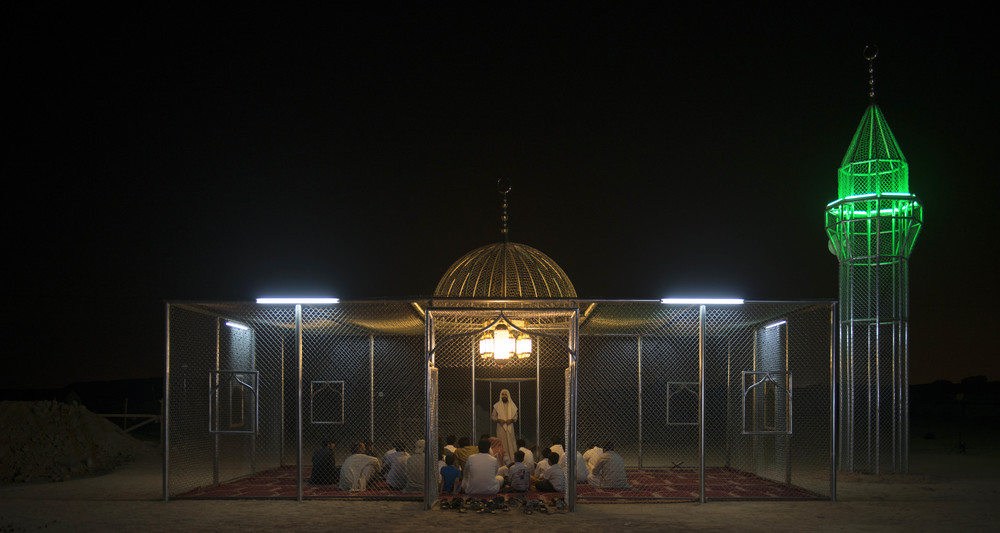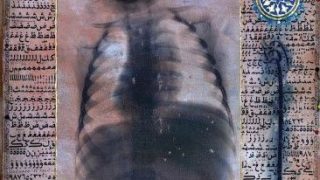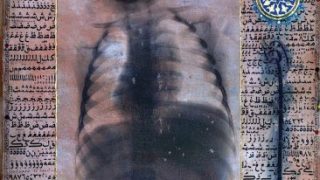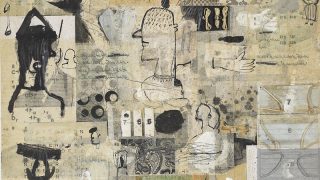From within the strange kingdom of Saudi Arabia, an impassioned critique of a public education system so afraid of dissent that it stuffs the kingdom’s young minds with religion and grammar to crowd out any other knowledge. Dissent of any kind, from imported liberality to the self-reinforcing growth of ‘salafi’ fundamentalists, is at the root of the fear.
A public attack by Saudi Arabia’s previous education minister on the very system of instruction he oversaw until not long ago: “The entire teaching structure in Saudi Arabia belongs to the extremists; there is no place in it for moderate Saudi thinking, Prince Khalid al-Faisal says. “We have abandoned our children to these people, and they have abducted them.”
In his days at the helm of the ministry, al-Faisal had made grand assurances that his department was dedicating itself to spreading an ideology of moderation at all levels of instruction and in every field, with particular emphasis on reforming religious curriculums. A vast budget was being allocated toward this aim, he announced: the [2007] King Abdullah bin Abdul-Aziz Project for Public Education Development!
And then there is his successor; the current Education minister Ahmed al-Issa, who once wrote a rather eye-catching book: How to Repair Education in Saudia When You Have No Political Vision, An Extremely Closed Religious Culture and A Weak Bureaucracy. Immediately after its 2009 publication, al-Issa’s book was pulled from circulation: extremists showing their power. In his book, al-Issa tells us that “We are failing to fix our crippled education system, not just because of the poor quality of the teaching materials, the educators themselves, or the learning environment, but because the very vision of what we are trying to achieve with education is primitive, and nobody is really working to change that.”
The vast and brute weight that is given to religious and formal Arabic language instruction, at the expense of all other fields of knowledge – a disproportionality that continues all the way from preschool until graduation from university – is however a deliberate choice, a choice that can lead nowhere but to the miserable results we see every day and in every facet of Saudi life.
If I have chosen to quote two senior officials who are after all ultimately in charge of this very education system – rather than the numerous enlightened elites of the university and intellectual circles who have criticized it, people who have also made serious efforts to change the situation – if I have quoted these officials instead, it is to show how broad and deep is the fight between various centers of power over the future of education in the kingdom.
The first of these education ministers, Faisal, is of course a prince from the ruling family, even if he is not himself a decision-maker among the princes. As a prince, Faisal can openly criticize extremists, but he cannot admit that there is a historical and ongoing and inseparable collusion between these extremists and the absolute power of the ruling family of which he is a member. This is a ruling family which holds its place through a doctrine of blind obedience to the ruler, a rejection of any separation of powers, the consolidation of all power into the hands of the king and his entourage. And through its warm and nurturing mutual embrace with the religious extremists who guard its back.
And the latter minister, al-Issa? An enlightened liberal, a member of the so-called technocratic elite, supremely qualified and professional, a perceptive problem-solver. But al-Issa knows quite well why he has been placed at the head of the ministry: he is there to polish the king’s image for his critics within the kingdom and abroad. A shield for the king, who himself needs the king’s shield to protect him from the assassins who hide in the shadows. Which is a very different role than, say, launching a project of rooting out the Salafi religious current’s destruction of the education system.
What drives the ruling family to present these reforms? First, the king fears the wrath of the west, and especially America – angered that the system produces and exports takfiri [Sunni extremist] jihad, and that the kingdom takes such feeble measures in the face of religious extremists. Second, there is this desire to construct at least the appearance of a modern kingdom, and perhaps respond to the place’s genuine need for well-educated local professionals who can speak other languages and deal with the technology and equipment that the kingdom requires for its everyday affairs. This is after all no longer the Saudi Arabia of [novelist] Abdelrahman Munif’s Cities of Salt, a mere scattering of oil-rich towns erected on a frail crust of sand and sustained by foreign experts.
In 1924, the ‘Directorate of Knowledge’ was established; previously the only public primary schools had been in Mecca, Medina and Jeddah; now they were opened all over the Kingdom. The Directorate also established a teachers’ training institute in Mecca. Only a few years later, the attacks on these schools had begun, with the predictable result: in 1930 the ministry began to stuff them with religious and formal Arabic language instruction, meanwhile dwarfening other more controversial topics.
The details of this evolution in public education appear in Hafez Wahba’s book The Arab Peninsula in the Twentieth Century. Wahba, an advisor to the king between 1915 and 1934, writes that in geography classes, for example, any mention of the fact that the earth is a sphere was prohibited, due to the Quran’s never mentioning that the earth is round; likewise were prohibited any globes or maps depicting the earth as round.
In 1953, the Ministry of Education was born. Among its achievements: it added a few science classes and other non-religious subjects.
Immediately there was an outcry from the Salafis and their followers. They launched a campaign claiming that shrinking the proportion of religious classes, while adding un-Islamic subjects like fine arts, music and the English language, was a violation of the Shari’a. The government elected not to contradict the Salafi outrage, instead opening a few new private schools to offer non-religious subjects.
Its name or names would change many times over the following years, the government body that oversaw education in the kingdom; sometimes a single ministry, sometimes split into several. Finally melded into a single government ministry, it came under the leadership Ahmed al-Issa, once the dean of Yammamah University and a playwright. Al-Issah’s had once written a play, “A Moderate with No Middle”; while being performed onstage at his own University, the production was assaulted by the morals police.
There are a total of 33,500 primary, preparatory and secondary schools in the Kingdom, in addition to 33 universities (24 of which are public). The remaining nine private universities are overwhelmingly devoted to scientific research.
Most of those private universities were established by princes of the ruling family as deliberate escape valves from the strictures of public higher education, as openings to escape the suffocating tension of the rest of the system, and as places which might permit some contact with foreign universities.
As for the public universities, all of them must teach a dose of religious studies to all students, along with their areas of academic study. Some of them teach nothing but religion, and are off limits for female students. Gender segregation is of course a rule in all Saudi schools and universities—except for the preschools.
There are additionally hundreds of schools across the Kingdom specifically for Quran memorization and recital, which train mosque preachers, imams and the kingdom’s judges. These Quranic schools are funded by the government, in addition to alms giving by wealthy traders, contractors, property owners, social climbers and sycophants; billions of dollars are spent every year on them.
Every objective indicator shows that the Saudi education system in general, and the religious portion of it in particular are failures. The system it turns out generation after generation of ignorant graduates, easy to brainwash and indoctrinate. Herein lies the explanation for the utter failure of Saudi-ization, of attempts to replace the foreign workforce the country is so dependent on with a professional class of educated locals.
Translated by: International Boulevard




